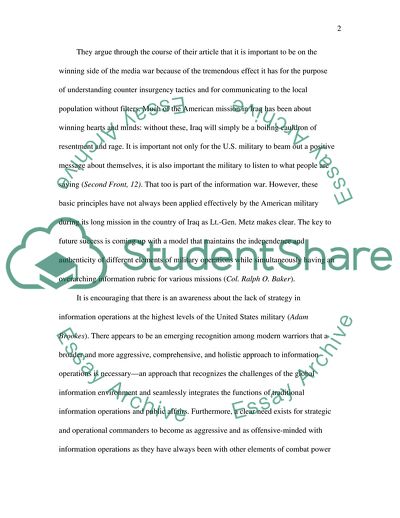Cite this document
(The Media and Propaganda in Iraq From 2003 Onwards Assignment, n.d.)
The Media and Propaganda in Iraq From 2003 Onwards Assignment. https://studentshare.org/military/1720408-the-media-and-propaganda-in-iraq-from-2003-onwards
The Media and Propaganda in Iraq From 2003 Onwards Assignment. https://studentshare.org/military/1720408-the-media-and-propaganda-in-iraq-from-2003-onwards
(The Media and Propaganda in Iraq From 2003 Onwards Assignment)
The Media and Propaganda in Iraq From 2003 Onwards Assignment. https://studentshare.org/military/1720408-the-media-and-propaganda-in-iraq-from-2003-onwards.
The Media and Propaganda in Iraq From 2003 Onwards Assignment. https://studentshare.org/military/1720408-the-media-and-propaganda-in-iraq-from-2003-onwards.
“The Media and Propaganda in Iraq From 2003 Onwards Assignment”. https://studentshare.org/military/1720408-the-media-and-propaganda-in-iraq-from-2003-onwards.


